Refine search
Actions for selected content:
23990 results in Ancient history
1: - The Early Republic
- from Part 1 - Political and Military History
-
-
- Book:
- The Cambridge Companion to the Roman Republic
- Published online:
- 05 June 2014
- Print publication:
- 23 June 2014, pp 3-18
-
- Chapter
- Export citation
Introduction to the Second Edition
-
-
- Book:
- The Cambridge Companion to the Roman Republic
- Published online:
- 05 June 2014
- Print publication:
- 23 June 2014, pp xxi-xxx
-
- Chapter
- Export citation
Series page
-
- Book:
- The Cambridge Companion to the Roman Republic
- Published online:
- 05 June 2014
- Print publication:
- 23 June 2014, pp iii-iv
-
- Chapter
- Export citation
The Cambridge Companion to the Roman Republic - Half title page
-
- Book:
- The Cambridge Companion to the Roman Republic
- Published online:
- 05 June 2014
- Print publication:
- 23 June 2014, pp i-ii
-
- Chapter
- Export citation
18: - The Roman Republic and the French and American Revolutions
- from Part 5 - Epilogue: The Influence of the Roman Republic
-
-
- Book:
- The Cambridge Companion to the Roman Republic
- Published online:
- 05 June 2014
- Print publication:
- 23 June 2014, pp 401-418
-
- Chapter
- Export citation
14: - The Rise of Empire in the West (264–50b.c.)
- from Part 3 - Rome’s Empire
-
-
- Book:
- The Cambridge Companion to the Roman Republic
- Published online:
- 05 June 2014
- Print publication:
- 23 June 2014, pp 303-320
-
- Chapter
- Export citation
The Cambridge Companion to the Roman Republic - Title page
-
-
- Book:
- The Cambridge Companion to the Roman Republic
- Published online:
- 05 June 2014
- Print publication:
- 23 June 2014, pp v-v
-
- Chapter
- Export citation
5: - Under Roman Roofs: Family, House, and Household:
- from Part 2 - Roman Society
-
-
- Book:
- The Cambridge Companion to the Roman Republic
- Published online:
- 05 June 2014
- Print publication:
- 23 June 2014, pp 101-126
-
- Chapter
- Export citation
3: - The Roman Army and Navy
- from Part 1 - Political and Military History
-
-
- Book:
- The Cambridge Companion to the Roman Republic
- Published online:
- 05 June 2014
- Print publication:
- 23 June 2014, pp 54-77
-
- Chapter
- Export citation
Copyright page
-
- Book:
- The Cambridge Companion to the Roman Republic
- Published online:
- 05 June 2014
- Print publication:
- 23 June 2014, pp vi-vi
-
- Chapter
- Export citation
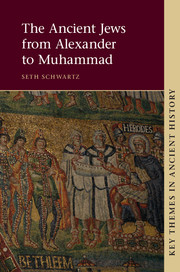
The Ancient Jews from Alexander to Muhammad
-
- Published online:
- 05 June 2014
- Print publication:
- 24 April 2014
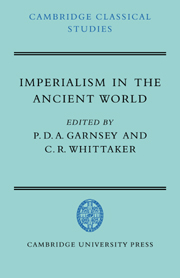
Imperialism in the Ancient World
- The Cambridge University Research Seminar in Ancient History
-
- Published online:
- 05 June 2014
- Print publication:
- 18 January 1979
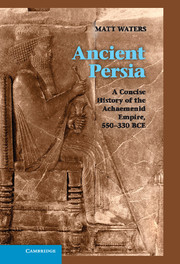
Ancient Persia
- A Concise History of the Achaemenid Empire, 550–330 BCE
-
- Published online:
- 05 June 2014
- Print publication:
- 20 January 2014
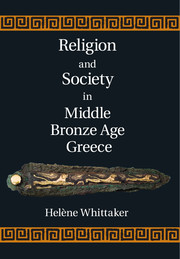
Religion and Society in Middle Bronze Age Greece
-
- Published online:
- 05 June 2014
- Print publication:
- 12 May 2014
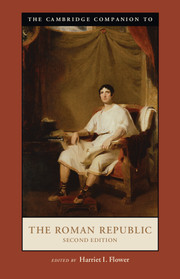
The Cambridge Companion to the Roman Republic
-
- Published online:
- 05 June 2014
- Print publication:
- 23 June 2014
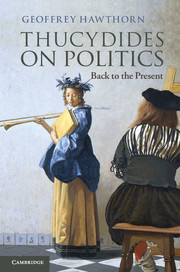
Thucydides on Politics
- Back to the Present
-
- Published online:
- 05 June 2014
- Print publication:
- 20 March 2014
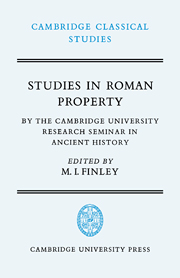
Studies in Roman Property
- By the Cambridge University Research Seminar in Ancient History
-
- Published online:
- 05 June 2014
- Print publication:
- 13 May 1976
The Geography of Strabo - Half title page
-
- Book:
- The <I>Geography</I> of Strabo
- Published online:
- 24 April 2020
- Print publication:
- 29 May 2014, pp i-ii
-
- Chapter
- Export citation
Book 12 - Central and northern Anatolia
- from The translation
-
- Book:
- The <I>Geography</I> of Strabo
- Published online:
- 24 April 2020
- Print publication:
- 29 May 2014, pp 513-554
-
- Chapter
- Export citation
Introduction
-
- Book:
- The <I>Geography</I> of Strabo
- Published online:
- 24 April 2020
- Print publication:
- 29 May 2014, pp 1-34
-
- Chapter
- Export citation
